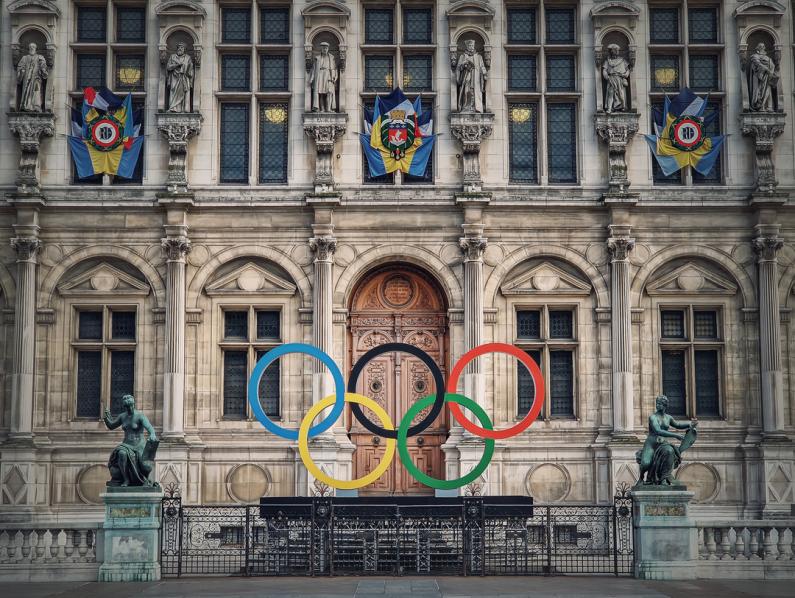
The pressure, challenges and rewards for the translation industry are immense during the Olympic Games. This article explores why accurate and effective translations are critical for the success of this global event, and examines both the challenges and the best practices.
Translation, a critical part of the Olympic Games
During the Olympics, translations will play a central role, providing clear communication and understanding between the many nations present. Accurate translation is the only way to guarantee clarity and ensure the information, rules, and official announcements are fully understood and absorbed. It is also a tool to promote inclusiveness and to celebrate cultural diversity. Low-quality translations amplify the risk of mistakes and misunderstandings, damaging both the organisation and the image of the event.
Linguistic hurdles for the Olympics
Real-time translation and accessibility
During the Olympics, real-time translation is one of the biggest challenges for the translation industry. Announcements, results, and interviews must be understood by everybody, from every country, as soon as they are released. Linguistic accessibility is the only way to ensure that each spectator, no matter where they are from, can smoothly and seamlessly follow the event. Translators must be fleet and accurate, often under great pressure to meet the tightest deadlines.
Managing multiple official languages
The Olympic Games uses several official languages, primarily French and English, but also the languages of the host countries and the participants. Coordinating these languages is a major logistical challenge. All documents, signs, and announcements must be available in each official language to ensure that everyone is on the same page. This means a specialised team of translators and careful planning are essential.
Specialised translations and sporting terminology
Olympic translation is more than just switching words from one language to another. This is a field which demands a deep understanding of sporting terminology. Translators must be intimately familiar with the specific vocabulary for each discipline to avoid errors and confusion. They must also understand the cultural subtleties and the contexts for the terms used for the various sports.
Translation into German, Arab, and Asian Languages: Cultural and Linguistic Challenges
Translating the Olympics into German
German is one of the most widely used languages during the Games, due to the large numbers of German-speaking participants and spectators. German translations must be accurate and reflect the cultural subtleties of the language. Translators must be intimately familiar with German sporting terms and be capable of translating quickly and accurately to ensure that spectators and participants alike get the information they need.
Translating the Olympics into Arabic
Thanks to increasing viewer numbers from Arabic-speaking countries, Arabic translations are increasingly important for a successful Olympics. Arabic poses its own unique challenges, with a variety of dialects employed and a unique alphabet and writing system. Translators must navigate between these dialects while keeping their translations accurate and loyal to the source text. This demands extensive linguistic and cultural expertise to ensure the Games’ messages are understood and followed by Arabic speakers.
Translating the Olympics into Asian Languages
Asian languages, including Japanese, Chinese, and Korean, are increasingly prominent Olympic languages due to the steady increase of spectators and participants from these regions. Translation into Japanese and Chinese is uniquely challenging, with complex writing systems and major linguistic differences between countries. Translators must be both skilled practitioners of these languages and master the specific cultural and sporting context if they are to provide an accurate translation. Asian-language specialists are vital within a translation team, and are the only way to ensure that communications are correct and correctly understood.
Recommendations for a successful translation
Specialised, professional translators are the key to success
The challenges for translators and translation during the Olympics are many and varied, and a team of professional, specialist translators are the key to success. In addition to their linguistic skills, these experts offer a deep understanding of the world of sport and its cultural context, a crucial element of a successful translation.
Apply cutting-edge technology
Translation technology, such as Computer-Assisted Translation (CAT) tools, play a vital role in Olympic translation management. Using translation memories and termbases, translators can maintain coherence and precision from start to finish. Artificial intelligence and automatic translation software can help accelerate the process too, but a human eye remains indispensable.
Answering your questions
What’s the French word for the Olympics?
Why is French the language of the Olympics?
Why is it called the Olympic Games?
Conclusion
To conclude, the challenges for the translation industry are many and varied during the Olympic Games. They determine the accessibility, accuracy, and management of the multiple languages and cultures represented during the Games. Translation will play a vital role in a successful Olympics, ensuring fluid communication and universal understanding. Paris 2024 demands impeccable translation, which is the only way that each spectator, athlete, and official can take home an enriching experience without any language barriers in their way.
Add new comment